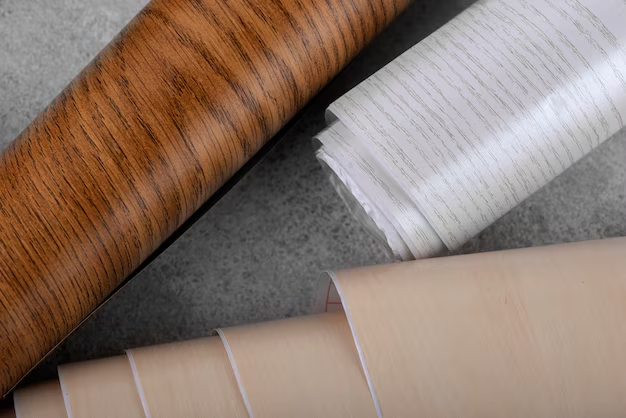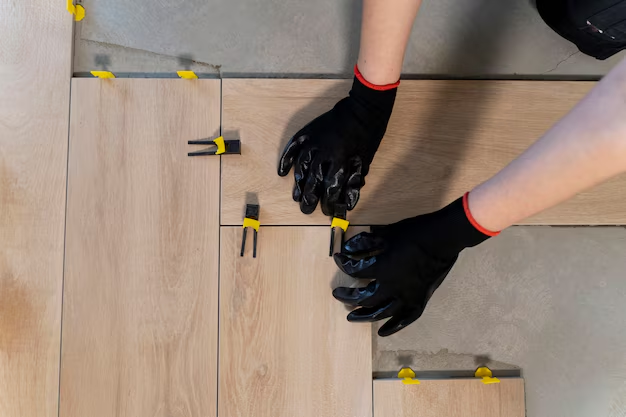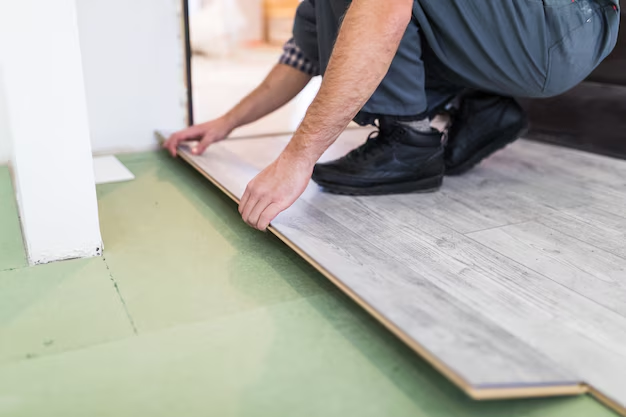can odor penetrate interlocking luxury vinyl plank flooring qui

When it comes to flooring options for your home, interlocking can odor penetrate interlocking luxury vinyl plank flooring qui has gained immense popularity due to its durability, aesthetic appeal, and ease of installation. However, one common concern among homeowners is whether odors can penetrate this type of flooring. This article explores the nature of interlocking luxury vinyl plank flooring, its resistance to odors, and how to maintain a fresh environment in your home.
Understanding Interlocking Luxury Vinyl Plank Flooring
Interlocking luxury vinyl plank flooring consists of multiple layers, including a wear layer, a design layer, a core layer, and a backing layer. The wear layer protects against scratches and stains, while the core layer provides stability. The interlocking feature allows for easy installation without glue or nails, making it a favorite for DIY enthusiasts.
Benefits of LVP Flooring
- Water Resistance: One of the most significant advantages of luxury vinyl plank flooring is its water resistance. This makes it ideal for areas prone to spills and moisture, such as kitchens and bathrooms.
- Durability: LVP is designed to withstand heavy foot traffic, making it suitable for both residential and commercial applications.
- Variety of Designs: Luxury vinyl plank comes in various designs, including wood and stone looks, allowing homeowners to achieve their desired aesthetic without sacrificing functionality.
- Ease of Maintenance: Cleaning LVP is relatively straightforward—regular sweeping and mopping will keep it looking new.
Can Odor Penetrate LVP Flooring?
The question of whether odors can penetrate interlocking luxury vinyl plank flooring is crucial for homeowners, especially those with pets or frequent cooking. While LVP is designed to be resistant to many external factors, it is essential to understand how it interacts with odors.
Read Also: luxury-30in-oven-with-gold-trim

- Surface Properties: The wear layer on luxury vinyl plank flooring is typically made from a high-performance polymer. This layer provides a barrier against spills and stains, which can also help reduce the absorption of odors. However, if a substance seeps through any cracks or seams, odors may penetrate.
- Seams and Edges: The interlocking mechanism can create seams between planks. If these seams are not properly sealed during installation, they can become entry points for odors, especially if they are exposed to moisture.
- Time and Intensity of Exposure: The longer an odor is allowed to linger on the surface, the more likely it is to seep into the flooring material. Strong odors, like those from spilled food or pet accidents, can pose a more significant risk if not cleaned up promptly.
Preventing Odor Penetration
To ensure that your interlocking luxury vinyl plank flooring remains fresh and odor-free, consider the following preventative measures:
- Immediate Cleanup: Always clean spills immediately. Use a soft cloth or paper towel to blot up liquids, followed by mopping with a suitable cleaner.
- Proper Installation: Ensure that the flooring is installed correctly, with all seams properly aligned and sealed. Hiring a professional can help prevent gaps that may allow odors to seep in.
- Use of Rugs and Mats: Place area rugs or mats in high-traffic areas, especially near entrances, kitchens, and dining areas. This can help catch spills and prevent odors from reaching the flooring.
- Air Quality Management: Regularly ventilate your space. Open windows, use exhaust fans, and consider air purifiers to help reduce indoor odors.
- Choose Quality Products: Investing in high-quality LVP flooring that offers enhanced odor resistance can be beneficial in the long run.
Cleaning and Maintenance Tips
- Regular Sweeping and Mopping: To prevent dust and dirt buildup, sweep or vacuum regularly. Use a damp mop with a gentle cleaner specifically designed for LVP.
- Avoid Harsh Chemicals: Some cleaning products can damage the wear layer of LVP flooring. Always opt for cleaners that are pH-neutral and safe for vinyl.
- Routine Inspection: Regularly inspect your flooring for any signs of wear, damage, or gaps. Addressing these issues promptly can prevent odor penetration and maintain the integrity of your flooring.
- Use Baking Soda for Odors: If you notice lingering odors, sprinkle baking soda on the affected area and let it sit for several hours before vacuuming. Baking soda is a natural odor absorber.
- Professional Deep Cleaning: Consider professional cleaning services for a thorough deep clean if odors persist, especially if they are related to pets or spills.
Conclusion
Interlocking can odor penetrate interlocking luxury vinyl plank flooring qui is a practical and stylish choice for many homeowners. While it does offer significant resistance to odors due to its design and materials, it is not entirely impervious. By understanding how odors can interact with LVP and taking proactive measures for maintenance and cleaning, you can enjoy a beautiful, odor-free living space. Ultimately, the longevity and appearance of your flooring depend on how well you care for it, ensuring it remains a focal point of your home for years to come.
FAQS
Can odors actually seep through interlocking luxury vinyl plank flooring?
Yes, odors can odor penetrate interlocking luxury vinyl plank flooring qui, but this typically depends on several factors.
What types of odors are most likely to penetrate LVP flooring?
Strong odors, such as those from pet accidents, food spills, or moisture, are most likely to penetrate LVP flooring if not addressed quickly. Prolonged exposure to these odors increases the likelihood of them being absorbed, especially if the flooring is not sealed properly at the seams.
How can I prevent odors from penetrating my LVP flooring?
To prevent odors from penetrating your LVP flooring, follow these tips:
- Clean spills immediately: Wipe up any spills as soon as they happen to prevent absorption.
- Ensure proper installation: Hire professionals to ensure seams are sealed correctly during installation.
- Use rugs and mats: Place mats in high-traffic areas to catch spills and reduce the chances of odors reaching the flooring.
- Maintain good ventilation: Regularly air out your home to help dissipate any lingering odors.
What cleaning methods are best for maintaining odor-free LVP flooring?
To maintain an odor-free environment with LVP flooring, consider the following cleaning methods:
- Regular sweeping and mopping: Use a soft broom or vacuum to remove dirt and debris, and mop with a pH-neutral cleaner designed for vinyl.
- Avoid harsh chemicals: These can damage the wear layer and make the flooring more susceptible to odors.
- Use natural odor absorbers: Baking soda is an effective option; sprinkle it on affected areas, let it sit, and vacuum it up to neutralize odors.
What should I do if odors persist despite cleaning?
If odors persist despite regular cleaning, consider the following steps:
- Professional cleaning: Hire a professional service for deep cleaning to remove stubborn odors.
- Inspect for damage: Check for any damage or gaps in the flooring that may allow odors to seep in, and address these issues promptly.
- Consider replacing affected planks: If the odors are severe and localized to specific planks, replacing them may be necessary.
